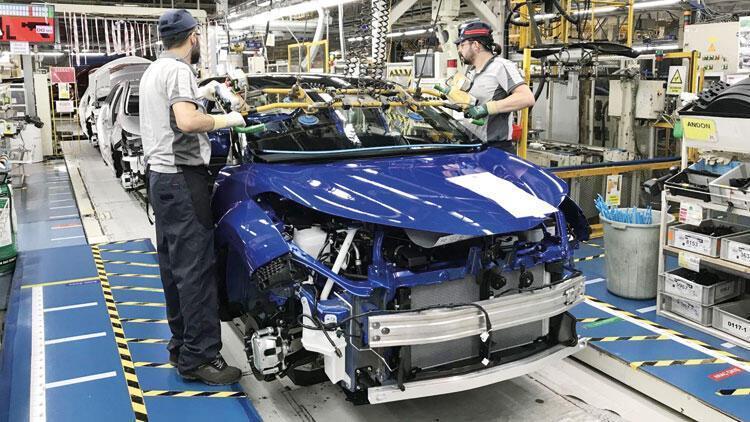
Worst is over for the Turkish automotive industry in terms of supply problems but now recession risks in Europe pose challenges to local carmakers, said Cengiz Eroldu, president of the Automotive Manufacturers’ Association (OSD), calling for measures to boost demand in local market.
“We are more optimistic about supplies in the final quarter of this year and believe that we will be affected less from those problems,” Eroldu told reporters in Istanbul.
Even though the situation is likely to improve in 2023, bottleneck issues will continue, he added.
Exports of the local automotive industry may decline next year, Eroldu said.
“In the face of this potential threat, local market should be supported. Problems with accessing financing should be resolved. For instance, companies cannot renew their car fleets due to financing issues. This is one of the major problems facing the automotive industry,” he explained.
Eroldu also called for the reassessment of tax system on vehicles. Almost all new cars are subject to 80 percent of special consumption tax, which impacts the purchasing power of potential car buyers, Eroldu explained.
“In order to support the local market against the contraction risks in the export markets, some steps should be taken [regarding financing and tax].”
Local carmakers export nearly 65 percent of their products to the eurozone countries.
In January-September, the automotive industry’s total production increased by 4.4 percent from a year ago to 962,000 with passenger car output remaining almost unchanged on an annual basis at 571,000 units, the OSD said.
Total vehicle sales were down 5.6 percent to 550,000 and passenger car sales dropped 8.2 percent in the first nine months of 2022.
Export revenues amounted to $22.7 billion in January-September, marking a 4.6 percent year-on-year increase, but passenger car exports fell by 3.3 percent to $6.4 billion.
In September alone, the industry’s output leaped 20.5 percent, while the local market expanded 11 percent. Some 45,000 passenger cars were sold last month, according to data from the OSD.
Eroldu forecast that the local automotive industry’s production will increase by somewhere between 8 to 15 percent in 2022 compared with 2021 to 1.4 million vehicles and that exports will rise around 11 to 17 percent to 1.1 million.
Meanwhile, carmaker Toyota will invest some 7 billion Turkish Liras ($377 million) in its plant in the province of Sakarya to expand its capacity to produce plug-in hybrid vehicles and batteries.
With the investment, which is expected to be completed in four years, the capacity of the plant will increase to produce 162,000 hybrid vehicles and 44,000 batteries annually.
When the expansion investment is completed, the plant’s annual production capacity will rise from 280,000 to 442,000 cars and an additional 52 jobs will be created.
According to a decision published in the Official Gazette, for this investment, Toyota will receive incentives, including customs duty exemption, the value-added tax (VAT) exemption, VAT refund and tax reduction.